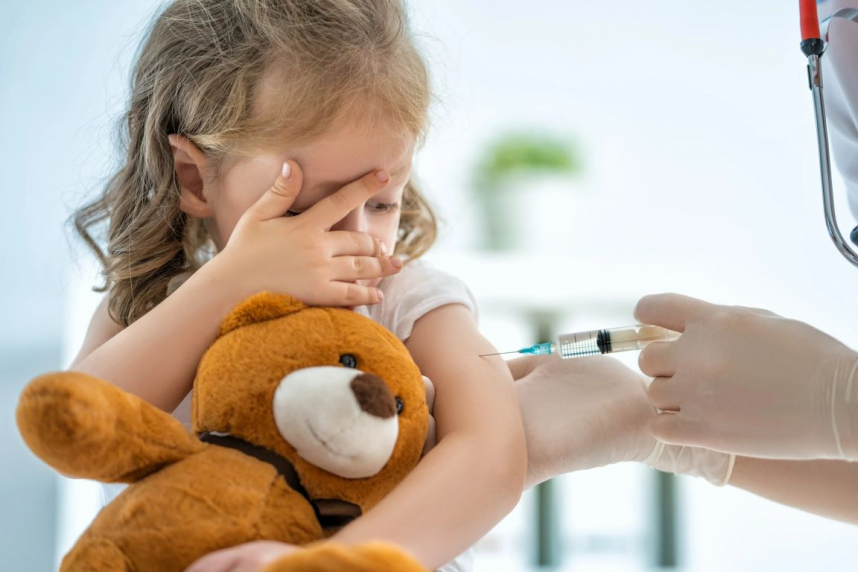
People all over the world lost confidence in the importance of routine childhood vaccines against killer diseases like measles and polio during the COVID-19 pandemic, according to a new report from UNICEF.
In 52 of the 55 countries surveyed, the public perception of vaccines for children declined between 2019 and 2021, the UN agency said.
The data was a "worrying warning signal" of rising vaccine hesitancy amid misinformation, dwindling trust in governments, and political polarization, UNICEF, the United Nations Children's Fund, said.
"We cannot allow confidence in routine immunizations to become another victim of the pandemic," Catherine Russell, UNICEF executive director, said in a statement. "Otherwise, the next wave of deaths could be of more children with measles, diphtheria, or other preventable diseases.”
The change in perception was particularly worrying, the agency said, as it comes after the largest sustained backslide in childhood immunization in a generation during COVID disruptions.
In total, 67 million children missed out on one or more potentially lifesaving vaccines during the pandemic, and efforts to catch up have so far stalled despite increasing outbreaks.
The picture of vaccine confidence varied globally, according to the UNICEF report, its flagship annual State of the World's Children.
In countries including Papua New Guinea and South Korea, agreement with the statement "vaccines are important for children" declined by 44%, and by more than a third in Ghana, Senegal, and Japan. In the United States, it declined by 13.6 percentage points. In India, China, and Mexico, confidence remained broadly the same or increased, the report added.
The report stressed that vaccine confidence can easily shift and the results may not indicate a long-term trend.
Despite the fall in confidence, more than 80% of respondents in almost half of the countries surveyed still said childhood vaccines were important.
The data was collected by the Vaccine Confidence Project at the London School of Hygiene and Tropical Medicine.